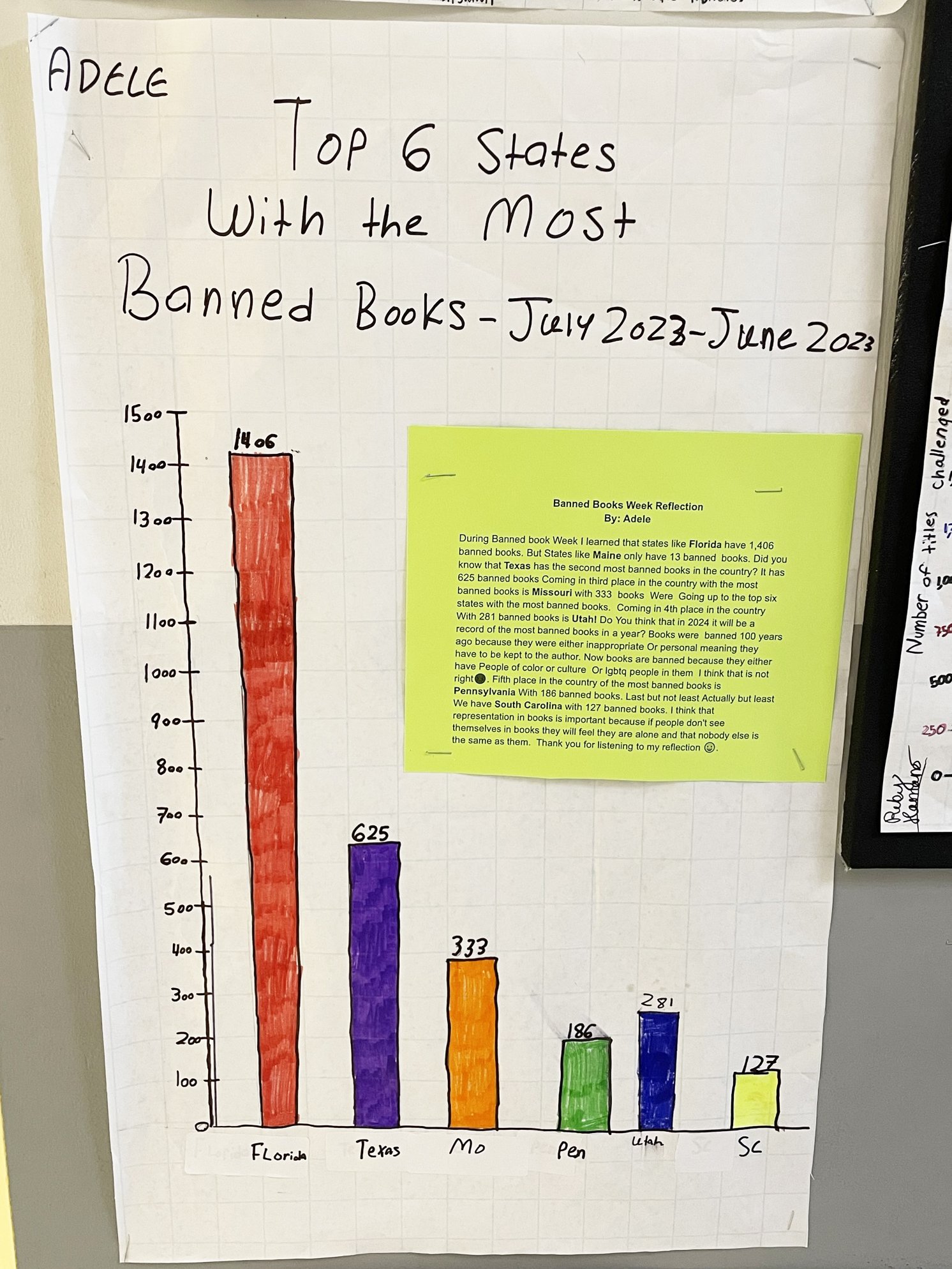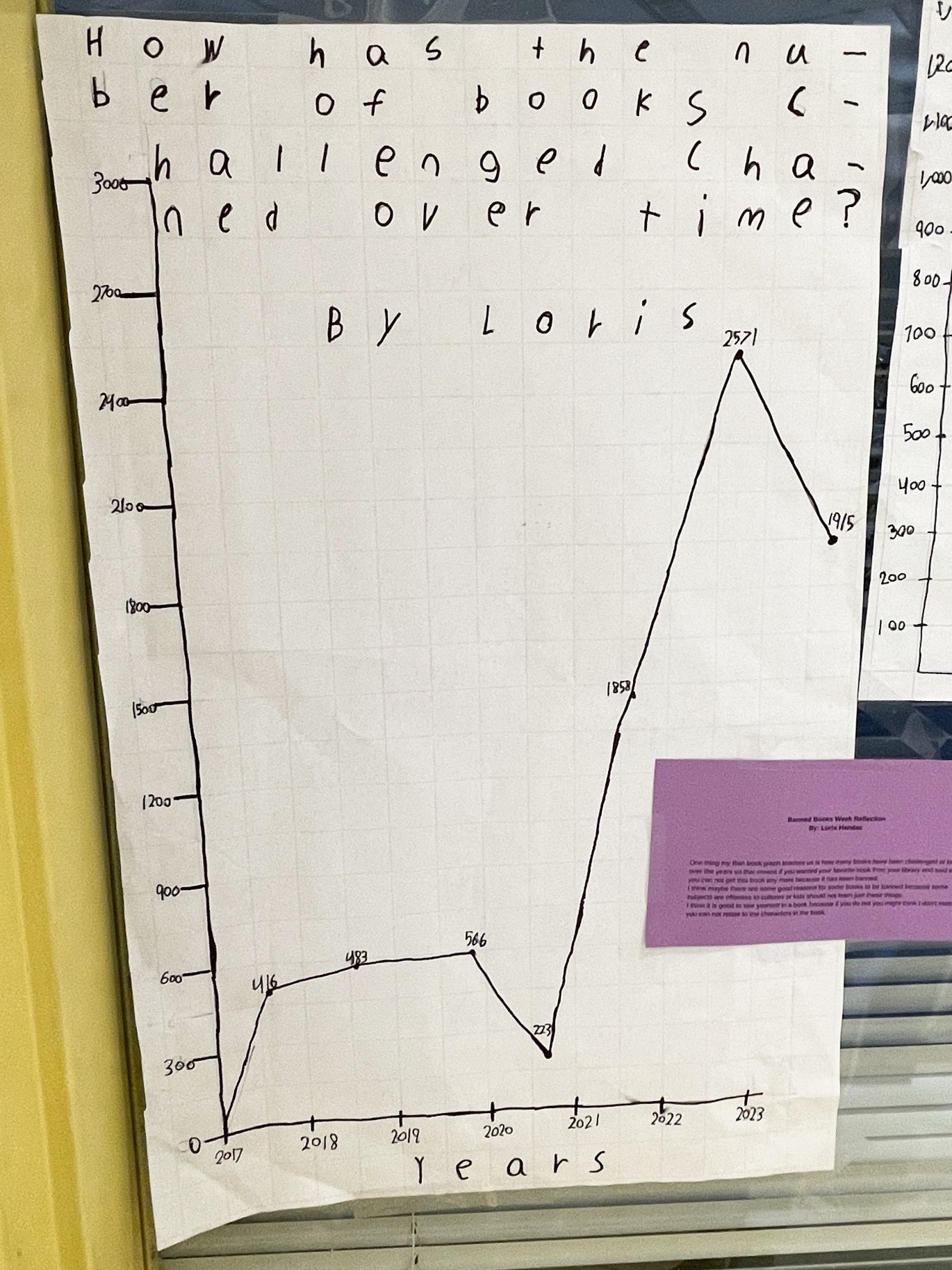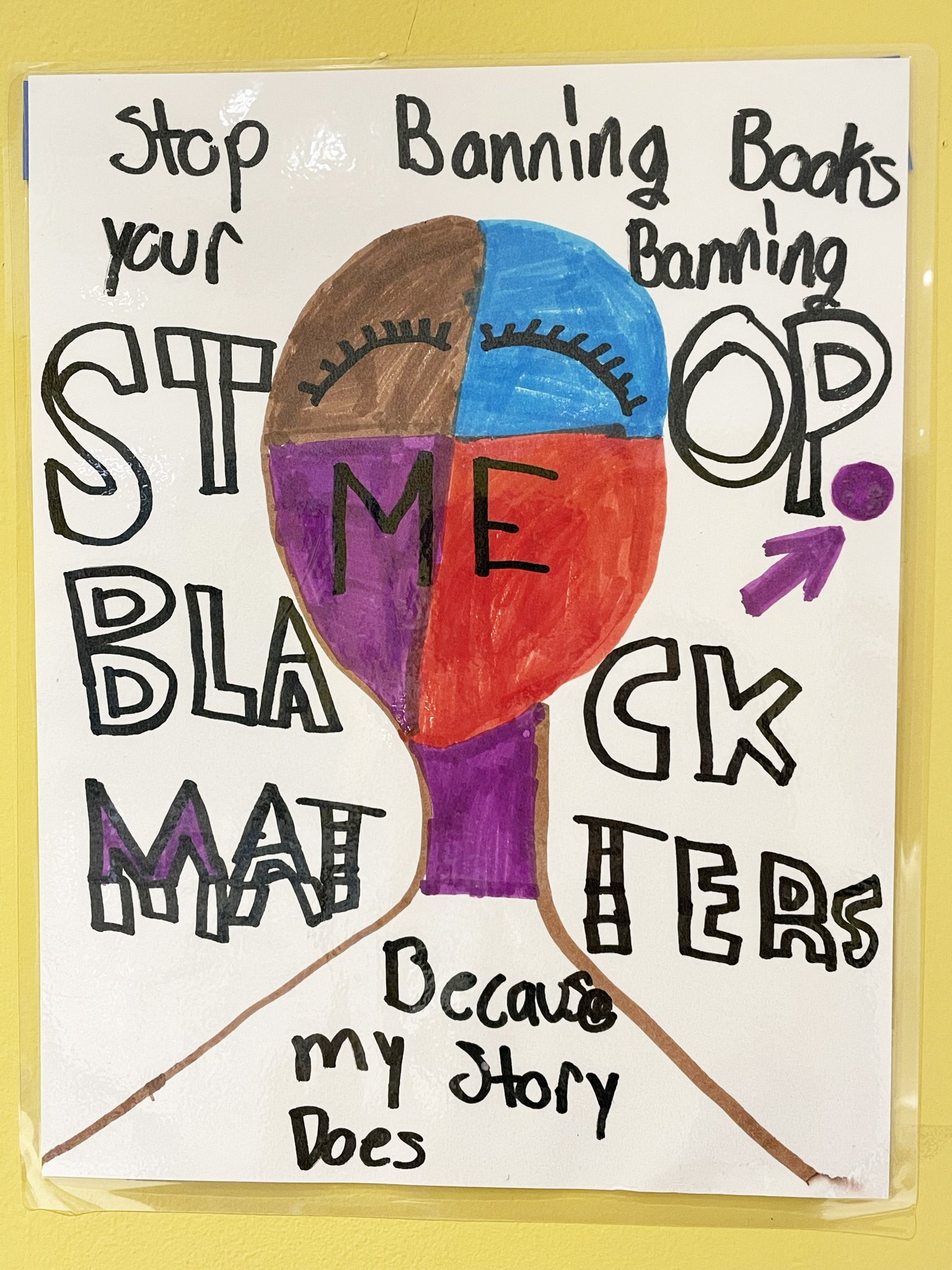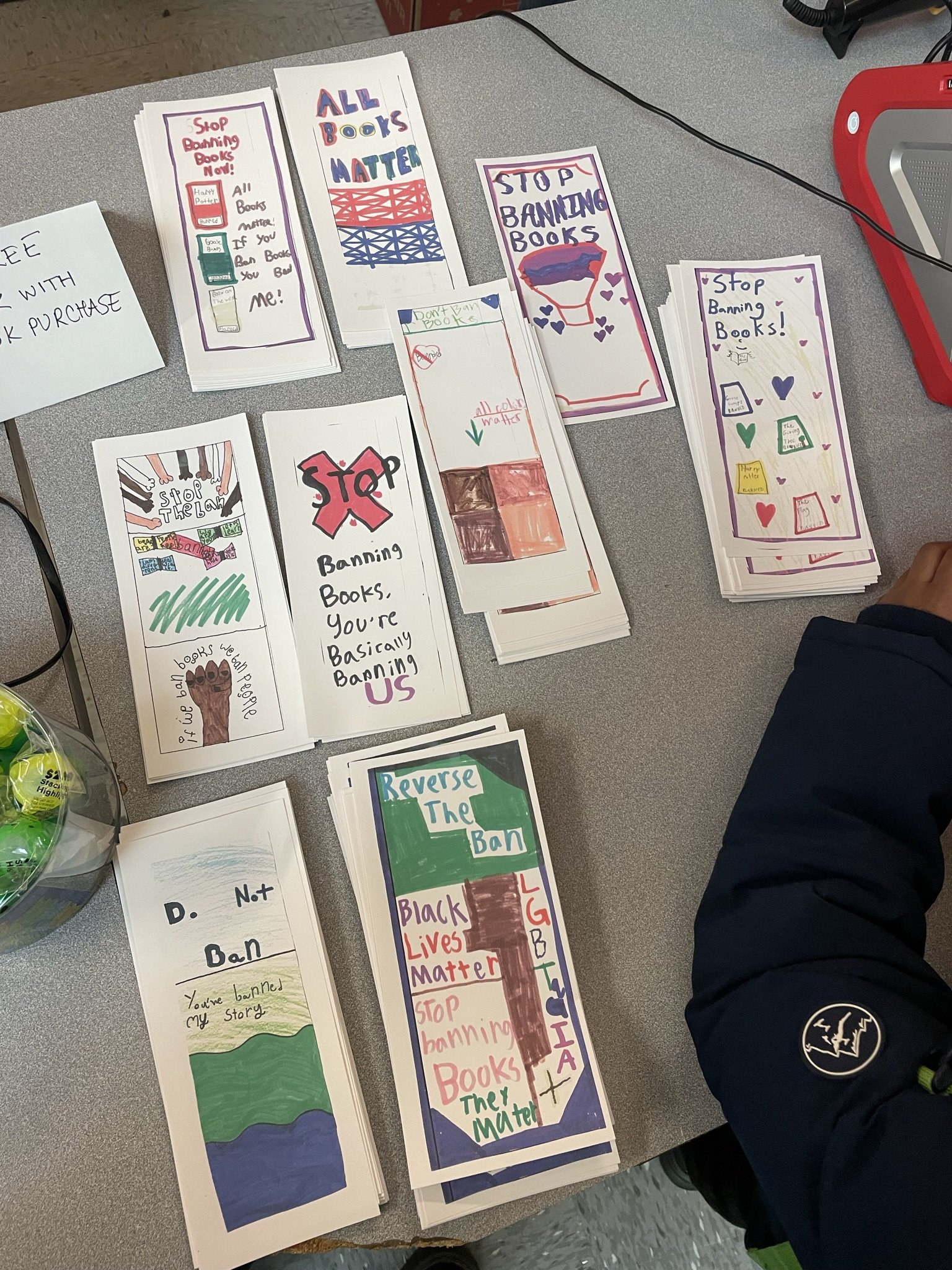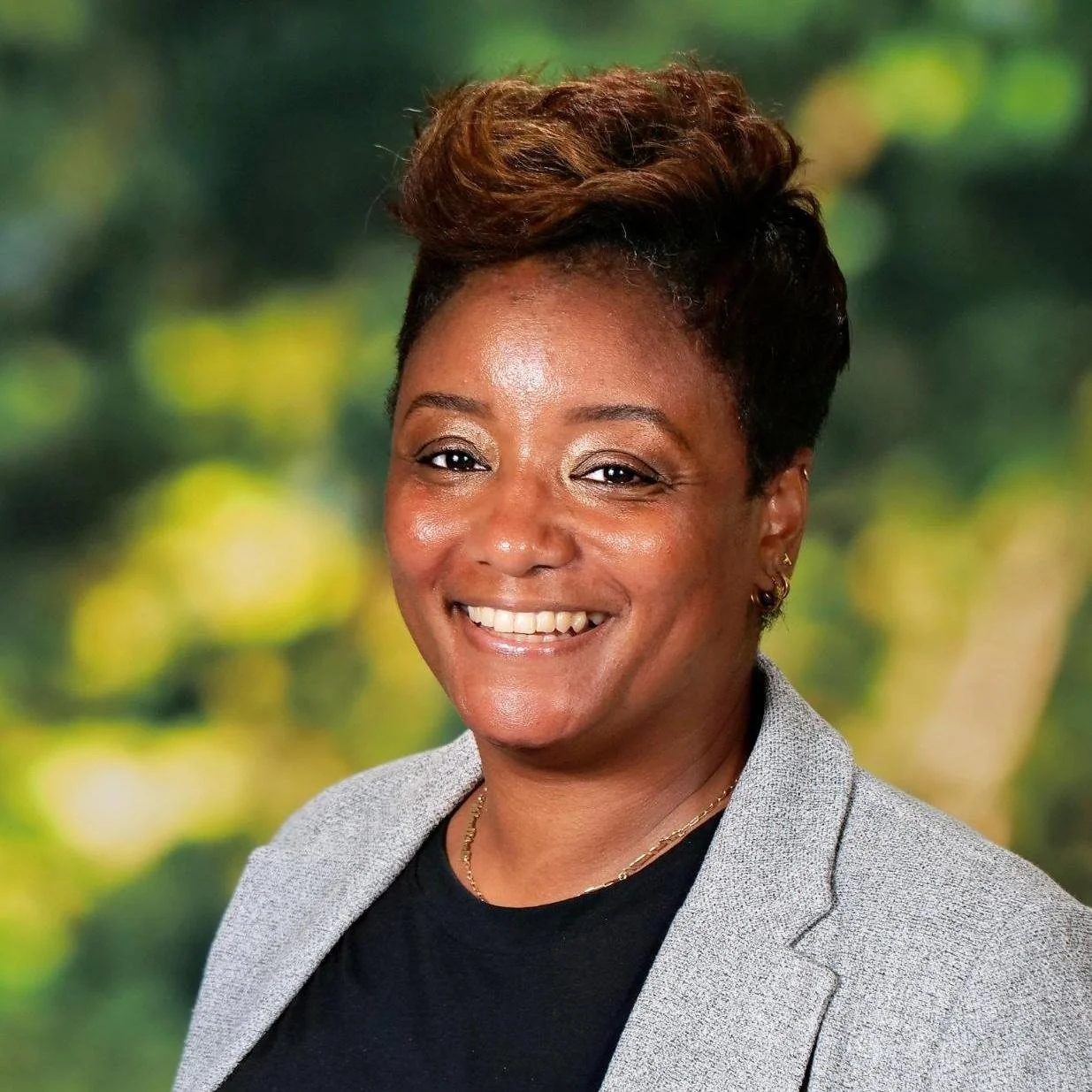4th Graders Challenge Book Bans and Scholastic
Inspired Teaching Demonstration PCS’ 4th grade teaching team of Katie Soffer, Robert Thompson, Miana Rooths, and Takiyah Carroll led students through a unit on book banning this fall which culminated in a letter to Scholastic expressing concern about the way books are categorized at their book fairs. Last year’s 4th graders also completed a unit on book banning.
This year in the math and science classroom, students began their inquiry by watching a video from the Washington Post and reading a New York Times article about the increase in book banning. They then discussed:
What is book banning? How would you feel if your favorite book was banned from your school or public library?
Why do you think some people want to ban certain books from libraries and schools? Is it okay for a few people to decide what everyone can or cannot read? Why or why not?
According to the article, what kinds of books are being taken off the shelves most? Why do you think these specific books are being targeted?
How do book bans affect students and the community? Do you think removing books from libraries can impact what people think and believe? How?
Students participated in mini-lessons on percentages and graphing, as well as types of graphs (bar, line, pictograph) before exploring data about diversity in children’s books; types, grade levels, and subject matter of books being banned; how book bans have increased over time; data on book bans by state; and the most banned books of 2023.
They then chose the topic they were most interested in from the data sets and completed a planning sheet as they worked to create graphs displaying the data. The students’ completed graphs and reflections were then posted in the hallway for other students and families to see during the trimester-end learning showcase.
In the ELA/social studies classroom, they focused on challenging the idea that a small group should be able to dictate which books a large number of students have access to in their schools or libraries. Students had learned about organizing, protest, and strikes from the Yummy Pizza Company labor lesson in third grade.
This year, students participated in a power simulation. Students pretended they were part of a democratic town in which villagers could design a plot of land. They spent a class period debating how to design their town and came up with a plan that suited everyone, but in the end unelected monarchs had the final say and decided upon a different plan. Students did not think this was fair.
Then the 4th graders read The Great Banned Books Bake Sale and talked about connections between the book banners and the monarchs in their own simulation. Students discussed questioning power and ways that people give up their own power. To assert their own power, they created posters against book banning.
Finally, students learned that a Scholastic book fair would be taking place at school and that the company had come under fire for offering schools the option to “opt-out” of receiving “diverse” book offerings. Students created bookmarks protesting book bans that each person receiving a book at the fair could take home, and wrote a letter to Scholastic about the issues with banned books at their book fairs. The letter and some of the book ban posters were on display at the book fair.
Dear Scholastic,
We are writing to express our concern with your proposed solution to the issue of banned books at your book fairs.
As a community of diverse humans who value the lived experience of others, we take serious issue with the opt-in/opt-out option you have provided schools, as well as your decision to segregate so-called "diverse" books. Your solution threatens the experience of students for two reasons. First, it gives schools the choice of taking the cowardly road of silencing experience. Second, it labels certain stories as other and therefore less important.
Mirrors let us see ourselves. Windows let us see different identities. Books do the same. They allow us to see that we matter and the teach us about reality beyond our lives. When kids don't have a balance of windows and mirrors in their reading lives, their growth as engaged citizen is seriously threatened.
We want you to get rid of the "opt out" option and incorporate all books you have labeled "diverse" into the other bookshelves. Add additional, not separate, shelves. A history shelf would include all books about the past. If someone wanted to find a Civil Rights figure, they would find it there. A shelf about growing up would include all experiences. Someone should expect to find immigrant stories there.
Are you aware of the effects of not being seen? How would you feel if you had to go to a separate shelf to see yourself? Actions take courage. We ask you to be brave for the sake of every young child.
Thank you for your attention to this matter,
ITDS Fourth Graders
Fourth Grade Teaching Team
Katie Soffer
Robert Thompson
Miana Rooths
Takiyah Carroll




